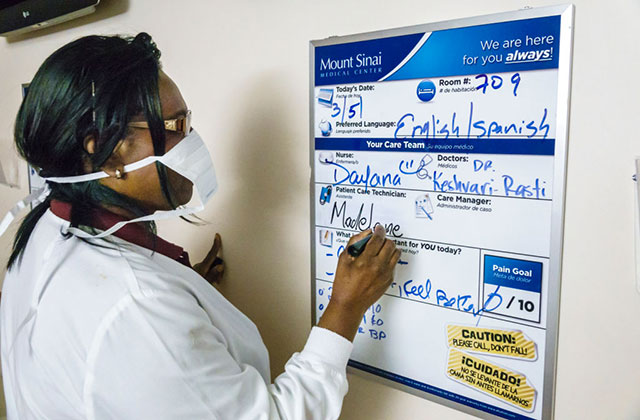Black women and women of color make up about 36 percent of nursing, psychiatric and home health aides workers, according to data from the National Center for Health Workforce Analysis, and Indeed reports that nursing assistants earn $14 an hour, on average. Yet, a recent article published by Ms. Magazine on April 21, underscores that Black women, in particular, are struggling to stay safe while working during the COVID-19 pandemic because they are not able to receive pay while also social distancing.
In fact, the New York Times recently published a short video documentary highlighting the health and economic challenges that two women of color on the frontlines of healthcare during the coronavirus pandemic face. One, Verna White, said that in her line of work social distancing is impossible. “Can’t do it,” White said in the video.
Ms. writes that “We need a reproductive justice approach to the pandemic in order to address the violent forces that have deprived marginalized communities from the basic resources and services necessary to save their lives during and beyond a pandemic.”
This is especially true when looking at the data. The National Partnership for Women & Families reported in 2018 that “due to racism, sexism and other systemic barriers that have contributed to income inequality, Black women are typically paid just 63 cents for every dollar paid to White, non-Hispanic men…[and a result] have less money to support themselves and their families, and may have to choose between essential resources like housing, child care, food and health care.”
To confront this inequity, Ms. Magazine reports that Black women and other women of color are advocating for a policy response that would protect the most vulnerable and at-risk populations—those on the frontlines. By pushing for remote home care services and flexibility in Medicare regulation, they are “actively recreating economic structures and communities of care that address the intersecting inequalities Black women have long faced.”
To better understand the current needs of healthcare workers, PHI is conducting a survey that will help them to improve practices and policies. Find it here.
